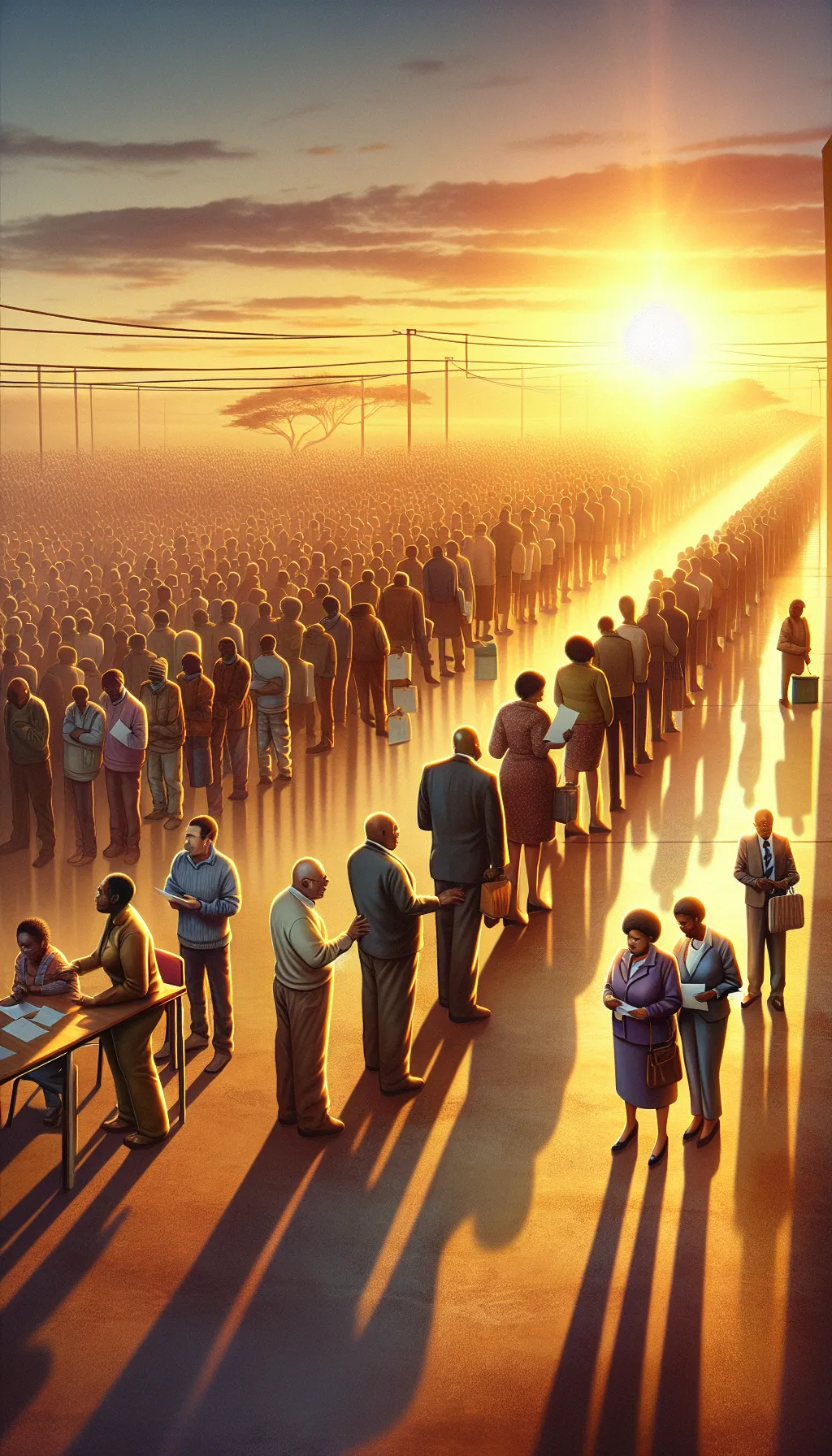South Africa – A New Dawn: South Africa's First Multiracial Elections, 1994
TLDR;
- Event: On April 27, 1994, South Africa held its first multiracial elections, marking the end of apartheid and the beginning of a new democratic era.
- Significance: This election allowed millions of Black South Africans to vote for the first time, symbolizing a major step towards racial equality and reconciliation.
- Outcome: Nelson Mandela was elected as the first black president of South Africa, leading a Government of National Unity with the ANC securing 62.65% of the vote.
- Legacy: Despite the historic achievement, the election also highlighted ongoing challenges such as systemic inequality, economic disparities, and social tensions that South Africa continues to address.
–
Story
The sun rose over South Africa on April 27, 1994, casting its golden light on a nation poised for transformation. For the first time in history, millions of South Africans, primarily Black voters experiencing their first election, stood in long lines, their hearts filled with hope and anticipation. This was not just an election; it was a rebirth.

For decades, apartheid had cast a long shadow over the country, enforcing a brutal system of racial segregation and oppression. But on this day, the chains of the past were being broken. The air was thick with the promise of change as people from every walk of life queued patiently, some for hours, to cast their votes in the first multiracial elections.
The journey to this moment had been fraught with struggle and sacrifice. Leaders like Nelson Mandela had spent years imprisoned, fighting for the dream of a free and equal South Africa. The world watched as the nation took its first steps toward healing and unity, despite the violence that marred the months leading up to the vote, including clashes between the ANC and Inkatha Freedom Party (IFP) that resulted in over 1,000 deaths in 1994 alone.
As the votes were counted, the results were clear: Nelson Mandela, a symbol of resilience and reconciliation, was elected as the first black president of South Africa. His victory, assured by the ANC’s dominance with 62.65% of the vote, was part of a coalition under the Government of National Unity (GNU), which included the National Party (20.39%) and IFP (10.54%) until 1996. It was not just a personal triumph but a beacon of hope for a country yearning for peace and equality.
The election of 1994 was a turning point, a moment when the impossible became possible. It marked the dawn of a new era, where the ideals of democracy and equality could finally take root and flourish, even as systemic inequality, land redistribution, economic disparities, and social tensions remained unresolved challenges.
–
| Would a different leader have changed the course of South Africa’s history? |